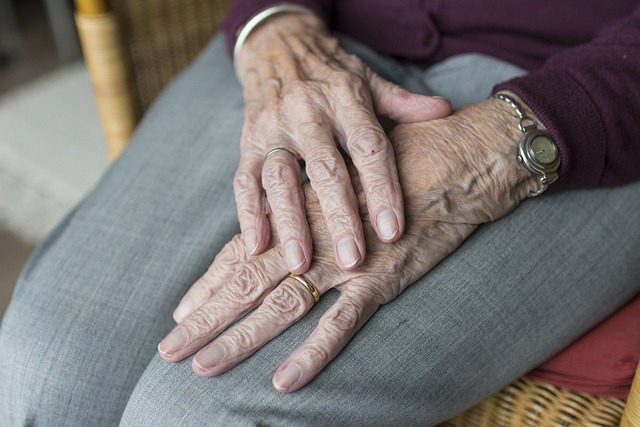Every day, seniors navigate complex medication regimens, a task that becomes increasingly challenging with age. Ensuring medication adherence is not just a health concern but a critical aspect of senior well-being, where elderly companion services play a pivotal role. This article explores how these services integrate technology and personalized care to facilitate effective medication management plans, fostering a collaborative environment between companions and healthcare professionals. Through these efforts, seniors receive tailored reminders and support, enhancing their compliance with prescribed medications and improving their quality of life.
- Understanding the Importance of Medication Adherence for Seniors Through Elderly Companion Services
- The Role of Technology in Medication Reminders for Senior Citizens with Elderly Companion Services
- Personalized Medication Management Plans and Elderly Companion Service Providers
- Effective Communication Strategies Between Elderly Companions and Healthcare Professionals to Ensure Medication Compliance
Understanding the Importance of Medication Adherence for Seniors Through Elderly Companion Services

Medication adherence is a critical concern for seniors, with elderly companion services playing a pivotal role in ensuring that this demographic maintains their prescribed medication regimens effectively. These services provide a personalized approach to medication management, often involving a dedicated caregiver who assists with scheduling, reminding, and even administering medications as needed. The importance of adherence cannot be overstated; it is fundamental for the therapeutic efficacy of medications, helping seniors manage chronic conditions such as hypertension, diabetes, and heart disease. Elderly companion services not only enhance compliance through direct interaction but also offer peace of mind to both seniors and their families, who can be confident that their loved ones are receiving timely reminders and support with their health regimen. The integration of technology within these services, such as medication reminder apps or smart pill dispensers, further bolsters adherence rates by providing alerts and reminders tailored to the individual’s specific dosing schedule, thus reducing the risk of missed doses or incorrect medication use. This proactive approach to medication management through elderly companion services is a testament to the value of personalized care in improving health outcomes for seniors.
The Role of Technology in Medication Reminders for Senior Citizens with Elderly Companion Services

With aging, managing medication schedules can become increasingly complex for senior citizens, making timely medication adherence a challenge. Elderly Companion Services have embraced technology as a vital tool to assist seniors in maintaining their health regimens. These services often utilize sophisticated medication reminder systems that send alerts via smartphones, tablets, or specialized devices. These reminders are personalized to the individual’s specific medication schedule, ensuring prompt dosing and adherence to treatment plans. The integration of these systems into Elderly Companion Services not only aids in the prevention of missed doses but also provides peace of mind for both seniors and their families. Furthermore, these reminders can be accompanied by additional health management features, such as medication education, dosage tracking, and even communication with healthcare providers, thus offering a comprehensive support system tailored to the needs of senior citizens.
The role of technology in Elderly Companion Services extends beyond mere reminders; it encompasses a holistic approach to medication management. By leveraging user-friendly interfaces and clear visual or auditory cues, these systems cater to seniors who may have varying levels of tech proficiency. They also facilitate real-time updates and adjustments to medication schedules based on changing health conditions, ensuring that the reminders are always accurate and relevant. This proactive approach not only supports the health goals of seniors but also contributes to a reduced risk of medication errors and hospital readmissions, thereby enhancing overall well-being and independence.
Personalized Medication Management Plans and Elderly Companion Service Providers

Personalized Medication Management Plans play a pivotal role in ensuring seniors adhere to their prescribed medication schedules, thereby maintaining their health and well-being. These plans are tailored to each individual’s unique needs, considering factors such as medication timings, dosages, and specific health conditions. By leveraging technology like pill dispensers with alarm systems and mobile applications that send reminders, these plans facilitate precise medication administration. They also allow for easy tracking of adherence and provide alerts to caregivers or family members when a dose is missed. The integration of these management tools not only simplifies the medication routine but also reduces the risk of overdose or under-medication, which are common concerns among older adults.
Elderly Companion Service Providers offer a robust solution for seniors who live alone or require constant care. These providers are trained to assist with daily tasks and monitor health conditions, including medication management. They often work hand-in-hand with healthcare professionals to implement the Personalized Medication Management Plans, ensuring that seniors receive their medications on time. Companion services also offer valuable companionship, reducing feelings of isolation and loneliness, which can be detrimental to an individual’s health. These providers are a critical component of in-home care, offering peace of mind to families and fostering an environment where seniors can thrive with the support they need to maintain their independence and quality of life.
Effective Communication Strategies Between Elderly Companions and Healthcare Professionals to Ensure Medication Compliance







